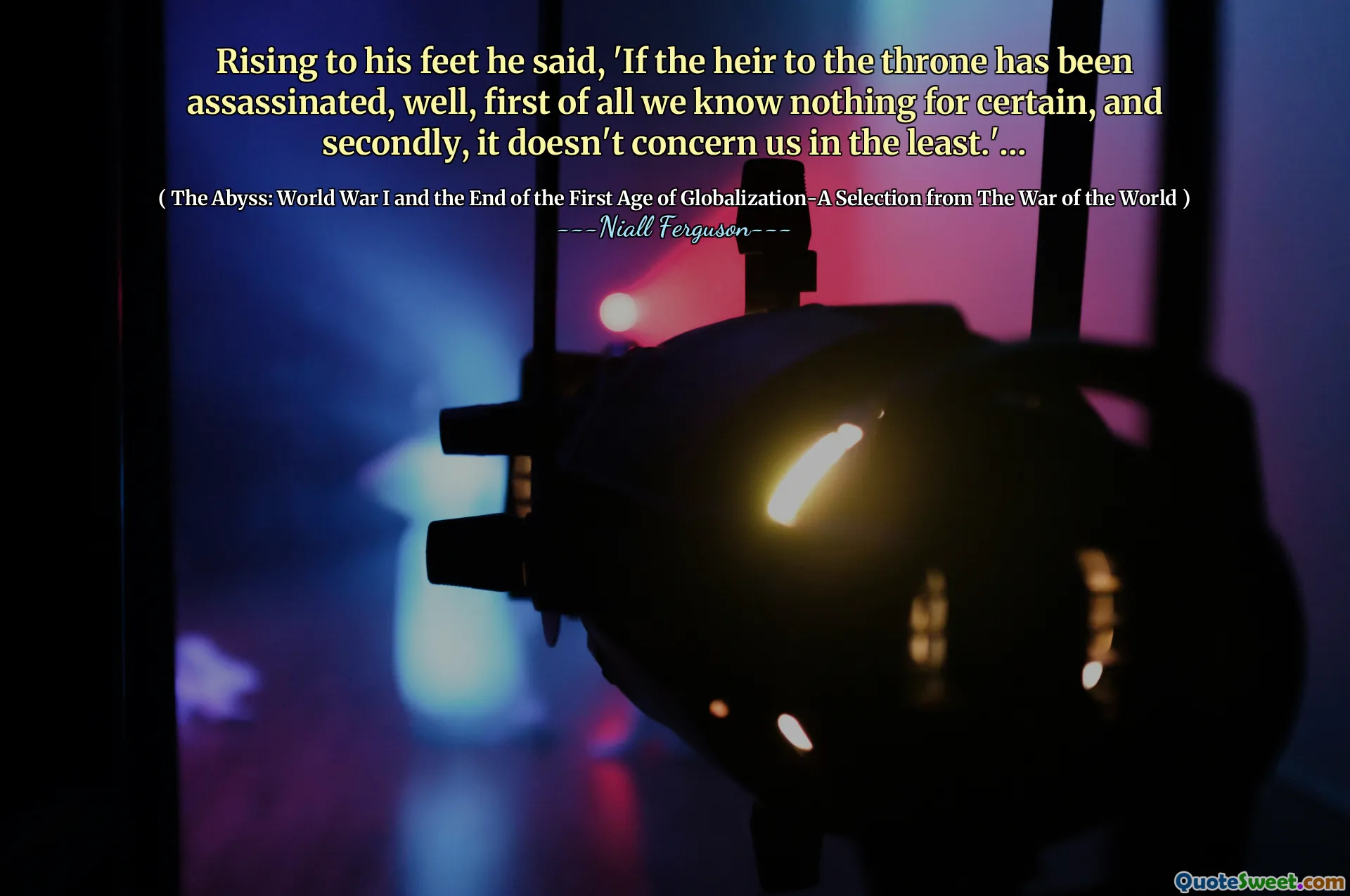
Rising to his feet he said, 'If the heir to the throne has been assassinated, well, first of all we know nothing for certain, and secondly, it doesn't concern us in the least.'…
In Niall Ferguson's exploration of World War I, he reflects on the assassination of the heir to the throne, which is often considered a pivotal moment leading to the war. He emphasizes the uncertainty surrounding the event and suggests that those not directly involved should not overreact to it, highlighting a tendency in international relations to misconstrue the importance of such incidents.
This perspective underlines the complexities of historical interpretation, as many failed to grasp the broader implications of the assassination. Ferguson's analysis invites readers to contemplate how global crises emerge from seemingly isolated occurrences and the potential disconnect between immediate reactions and the actual significance of events in history.











